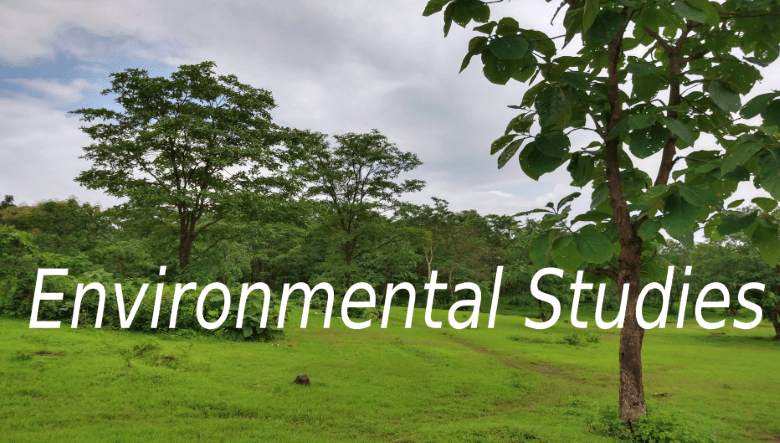EVS Full Form | What is Environmental Studies or Environmental Sciences
What is the full form of EVS?
EVS: Environmental Studies or Environmental Sciences
EVS stands for Environmental Studies. As the name suggests, it is the study of the environment that refers to the surroundings in which we live. The components of the environment comprise everything that supports the survival of humans directly or indirectly. These components can be living such as plants, animals and can be non-living such as soil, water and air. The living components interact with their environment and adapt themselves to the environmental conditions.
study of the environment that refers to the surroundings in which we livestudy of the environment that refers to the surroundings in which we liveEVS is taught as a subject in schools, however, it is also taught at the level of higher education. Besides this, it is also used to solve day to day problems related to the environment and its components.

It is taught in primary classes generally from 1st to 5th standard. Thereafter, it is included in Science. We can say that it is a scientific study of the environment in which students gain speciality in the subjects and issues related to the natural environment and its relationship to people.
stthscientific study of the environmentscientific study of the environmentEVS not only includes the physical or biological characteristics of the environment but also the social, cultural and other factors that affect the environment. So, it is a multidisciplinary academic field that studies human interaction with the environment in a systemic way. It also includes the relationship between the natural and built environment. So, it is a broad field of study with various degree programs in environmental studies such as bachelor's degrees, master's degrees, etc.
Importance of Environmental Studies:
- It helps explore sustainable ways of living.
- It helps understand the behaviour of humans and other animals under natural environment.
- It helps identify environmental issues and educate people about the same.
- It offers ways to use natural resources without harming the environment.
- It allows you to aware people about the importance and conservation of the environment.
Subjects of EVS:
Apart from the ecology and environmental science, the EVS subjects also include the following related subjects:
- Geography
- Ethics
- Anthropology
- Policy
- Politics
- Urban Planning
- Pollution Control
- Natural Resource Management
Courses in EVS:
There are lots of courses in EVS such as:
- Certificate Courses in Environmental Science
- Diploma in Environmental Science
- Sc. in Environmental Science
- Bachelor of Environmental Management
- Sc. in Environmental Management, and more.
- D in Earth Science
- D in Environmental Science, and more.
Eligibility for EVS courses:
- For undergraduate courses, the students must pass the 10+2 exam with biology as one of the subjects.
- For post-graduate courses, the students must have a bachelor's degree in a science subject or similar fields
Career options in Environmental Studies:
Some of the popular job titles for the EVS students are as follows:
- Environmental Scientist
- Environmental Consultant
- Wildlife or environmental photographer
- Lecturer
- Wildlife Film-maker
- Environment Journalist
- Director of Waste Management